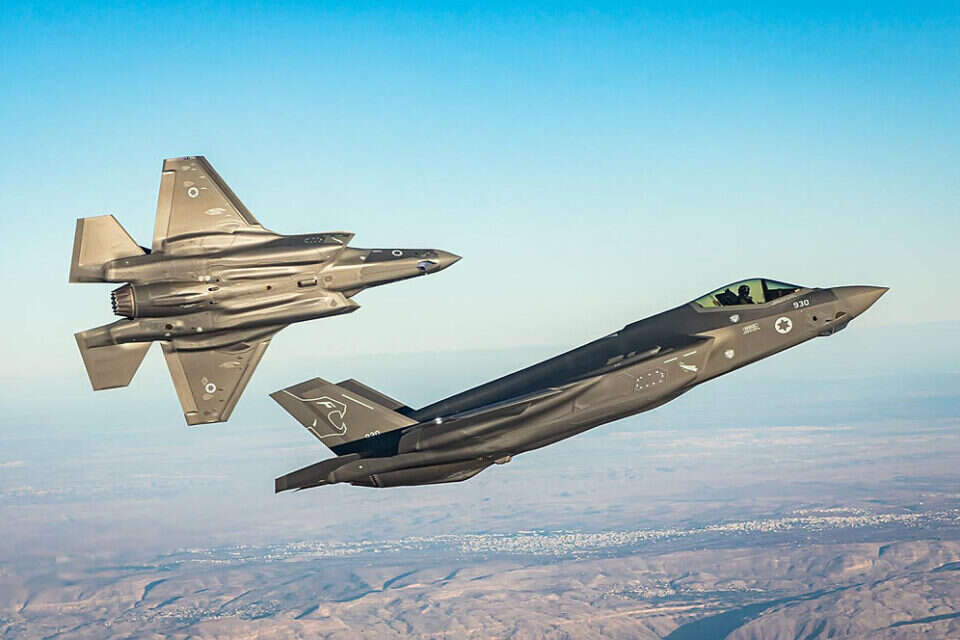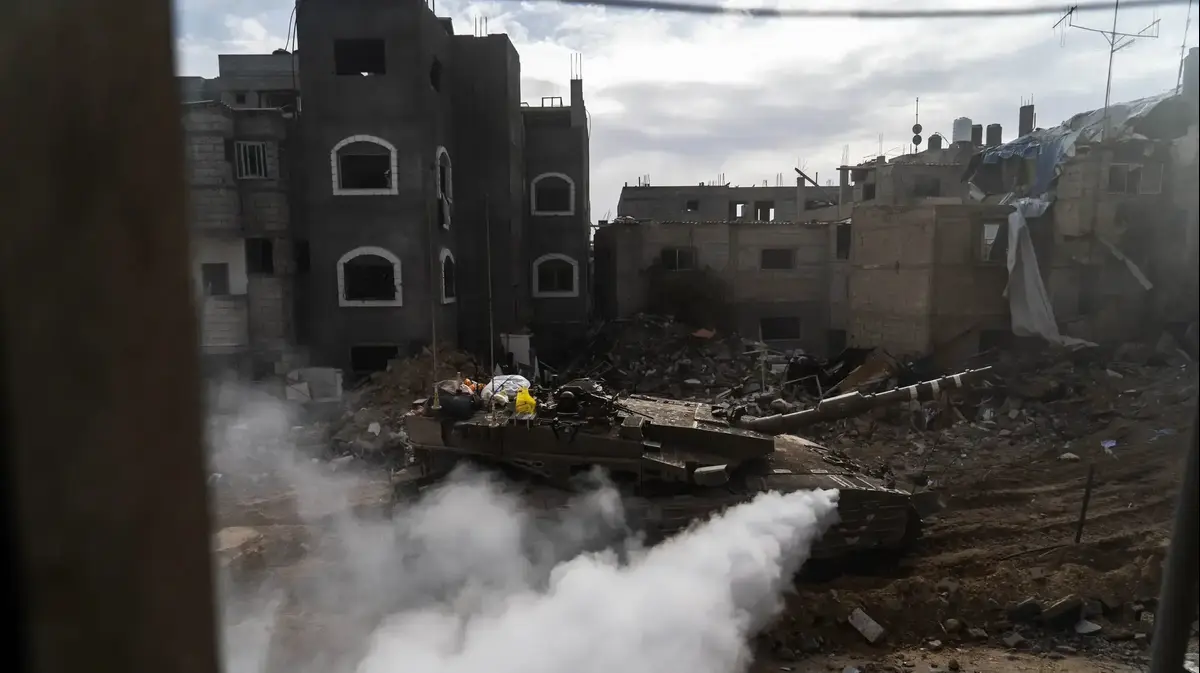In light of the decision of the political echelon and the progress of the Iranian nuclear program, the Air Force will next year begin training for a possible attack in Iran and it is estimated that the preparations will continue for at least a year.
Beyond the need for up-to-date intelligence and the preparation of several options for action, the Air Force will also be required to make changes to its force building, force training, aircraft maintenance and even the purchase of more spare parts in favor of long-haul flights.
It is no secret that in the last few months the IDF has decided to change its priorities and prepare for a valid and reliable military option for an attack on Iran. What is known in Israel as a "third circle", in favor of equally burning issues.
Commander of the "Ovda" base, Col. H., and pilots from the American and German Air Force in the Blue Flag exercise, October 2021 // Photo: Report
But recently, given the fact that the United States has lifted significant economic sanctions on Iran, while Tehran continues to develop its nuclear program without a return to the nuclear deal, Israel has decided to return to preparing for the possibility of attacking Iran, and a budget has been allocated.
The plan was presented to the Chief of Staff, Lt. Col. Aviv Kochavi, who approved it, and the Air Force estimates that it will take at least a year, if not more, until the plan is operational.
In Israel, it is hoped that in the meantime another way will be found to slow down or stop Iran's move to the nucleus.
Meanwhile, Israel points out that the Iranians are developing and using an advanced surface-to-air missile (TKA) that is stationed in countries such as Iraq, Yemen and Syria, and is intended, among other things, to harm the Israeli Air Force, which according to foreign publications operates in the arena. In it against Air Force planes, and in response, Israel hit some of its components.
Centrifuges at the Netanz nuclear facility, Photo: EP
The Air Force also points to an improvement in the operation of Syrian TKA batteries, which have shortened their response time by about 20% since 2017. As a result, they launch missiles at Air Force aircraft operating in Syria shortly after the attack begins. However, despite the Syrian News Agency's announcements after each attack, their damage to the Air Force's armament is very low, and does not disrupt the target targets set for each attack.
In light of this, the Air Force has changed its mode of operation, carrying out more extensive attacks each time, so as not to require several attacks in the same place in a short period of time.
At the same time, the IDF is planning in advance the angles of attack so that the chances of the same surface-to-air missiles fired by the Syrians penetrating Israeli airspace will be lower.
"More focused - looking east"
The IAF points to the expansion of the UAV threat to the State of Israel, with an emphasis on Iranian UAVs that are in various countries in the arena, including Iraq and Yemen.
Most of the details are forbidden in the publication, but it can be said that these are UAVs that are capable of flying thousands of kilometers and reaching the State of Israel from afar.
The IDF intends to purchase additional radars to embody the new threat.
UAV interception is supposed to be carried out by soft means - fighter jets or by "Iron Dome" fighters.
In the meantime, the IDF intends to report on ten regular Iron Dome batteries in the near future, and several more in the reserve. Between them and of course also improving their operational effectiveness.
Commander, Air Force, General Amikam Nurkin, Photo: IDF Spokesman
"The Middle East is a complex arena that changes at any given time," said Air Force Commander Amikam Nurkin.
"The challenges we face are growing so we need to be one step ahead of the enemy. The Air Force is routinely training to be prepared for a wide range of emergency scenarios."
The band's head, Brigadier General Amir Lazar, commented on preparations for an attack on Iran and said: "We are changing the point of work and being more focused with looking east.
The basic capabilities that require action in space in a third circle exist in the Air Force.
From the ability to refuel to the ability to work in disconnection and uncertainty - these are things we practice on a daily basis.
Therefore, it does not start from scratch, it is a shift in favor of improving capabilities. "





/cloudfront-eu-central-1.images.arcpublishing.com/prisa/TLU7IJNDQXDEINQIXHLDKFJXXU.jpg)

/cloudfront-eu-central-1.images.arcpublishing.com/prisa/WAVJJEPA4BDNVMN6J4U2ZSMFZI.jpg)





